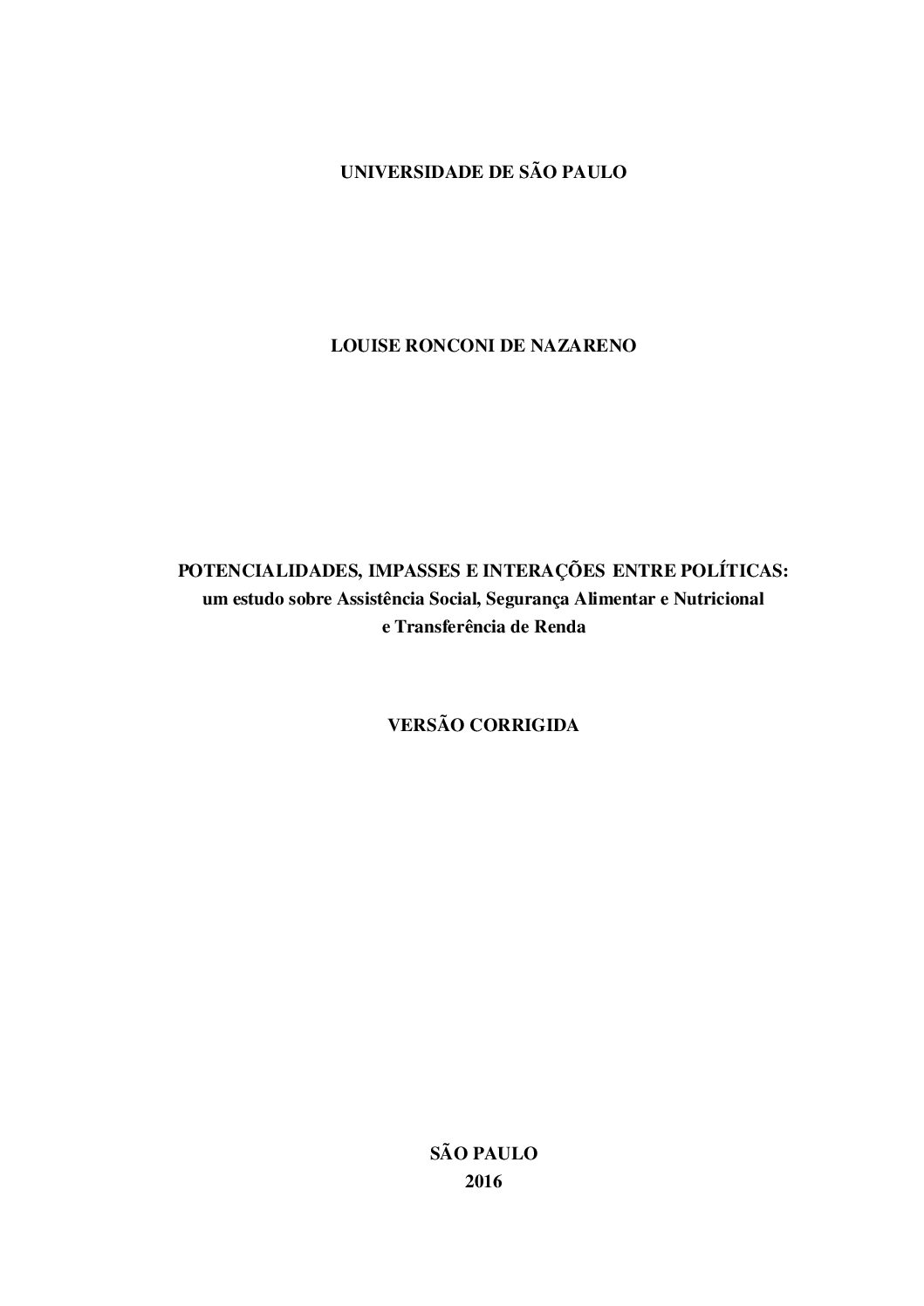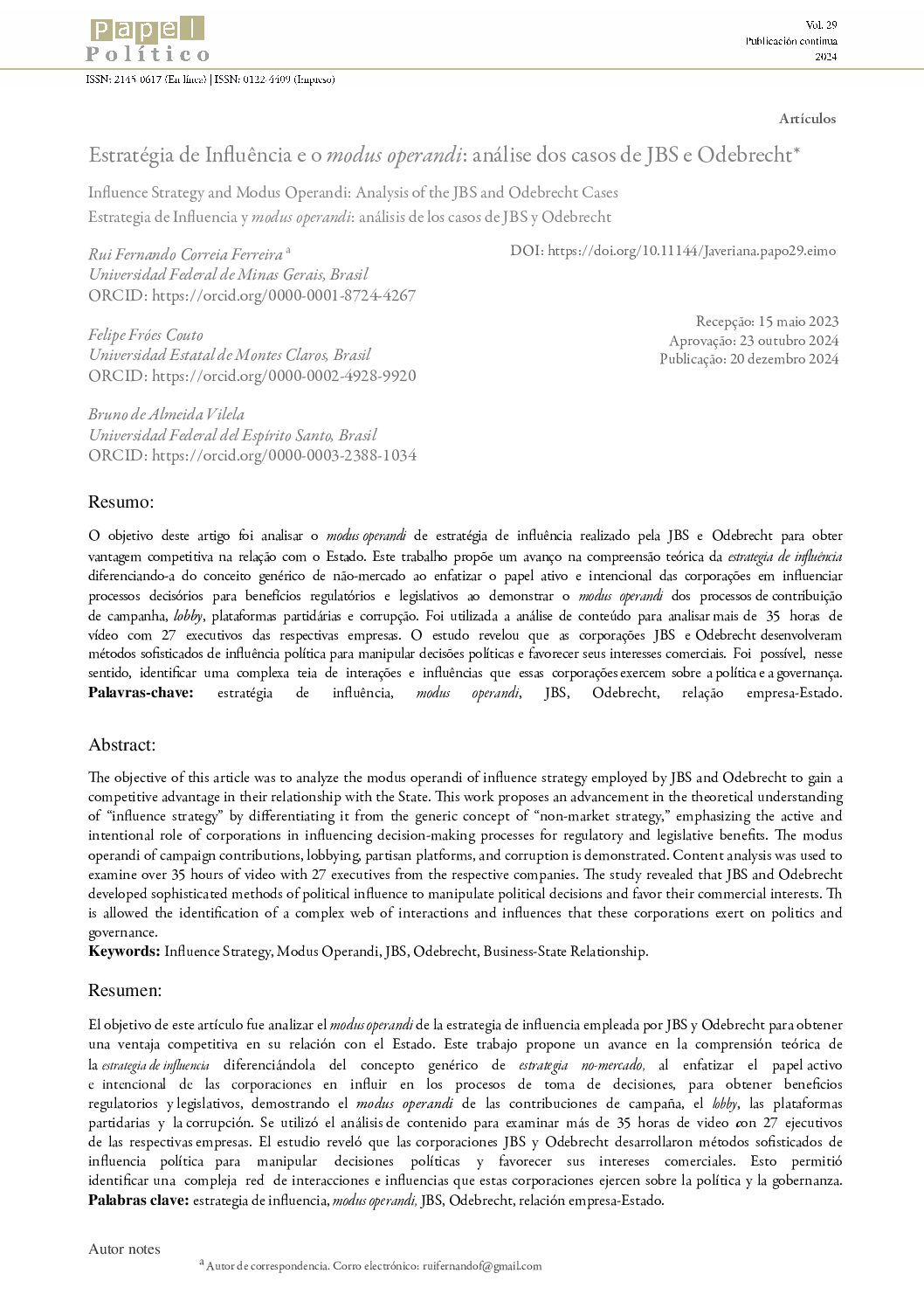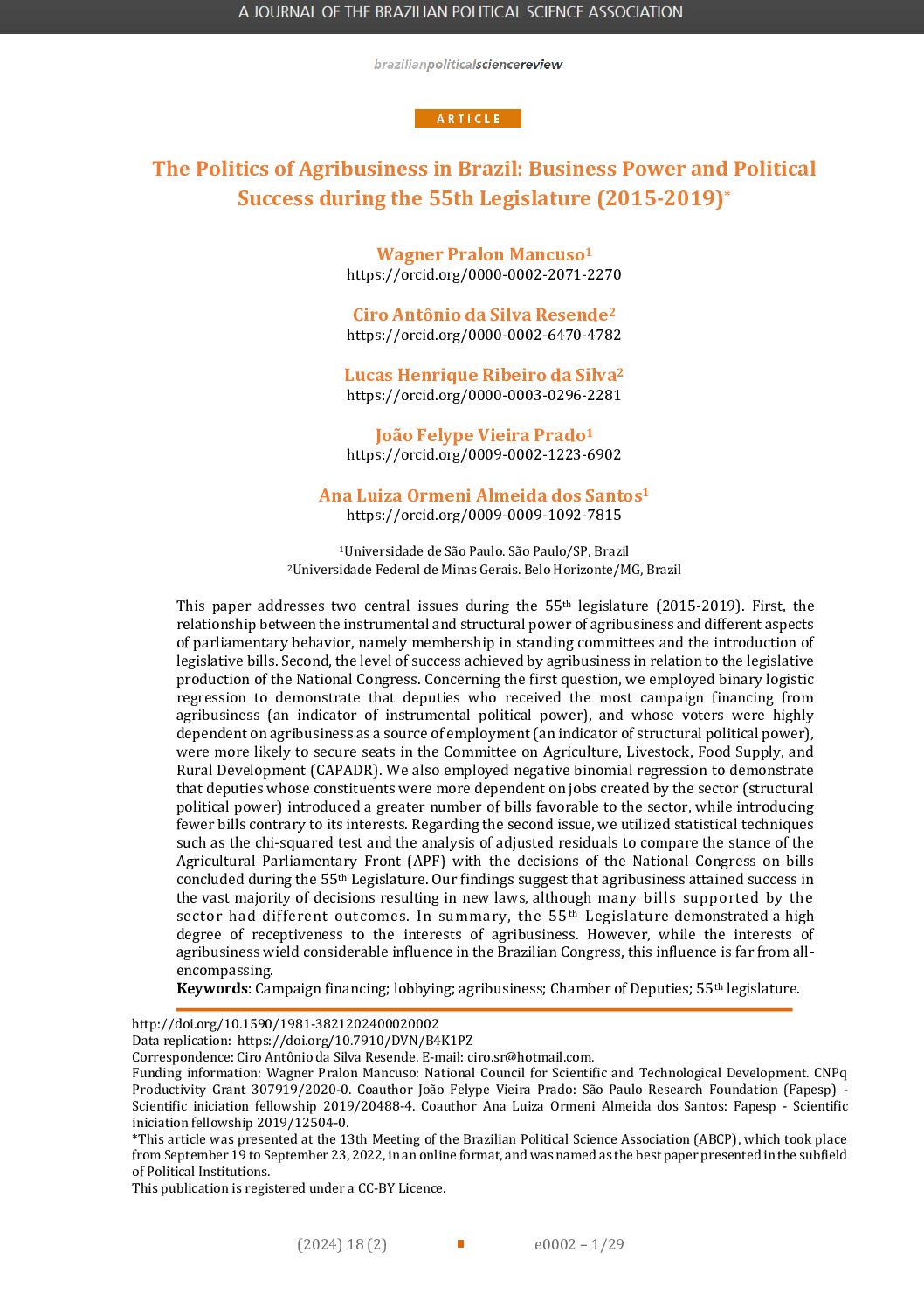
Potentialities, impasses and interactions between policies: a study on Social Assistance, Food and Nutrition Security and Income Transfer
21 de February de 2025
Influence Strategy and Modus Operandi: Analysis of the JBS and Odebrecht Cases
3 de April de 2025The Politics of Agribusiness in Brazil: Business Power and Political Success during the 55th Legislature (2015-2019)

Authors: Mancuso WP, Resende CA da S, Silva LHR da, Prado JFV, Santos ALOA dos.
Abstract:
This paper addresses two central issues during the 55th legislature (2015-2019). First, the relationship between the instrumental and structural power of agribusiness and different aspects of parliamentary behavior, namely membership in standing committees and the introduction of legislative bills. Second, the level of success achieved by agribusiness in relation to the legislative production of the National Congress. Concerning the first question, we employed binary logistic regression to demonstrate that deputies who received the most campaign financing from agribusiness (an indicator of instrumental political power), and whose voters were highly dependent on agribusiness as a source of employment (an indicator of structural political power), were more likely to secure seats in the Committee on Agriculture, Livestock, Food Supply, and Rural Development (CAPADR). We also employed negative binomial regression to demonstrate that deputies whose constituents were more dependent on jobs created by the sector (structural political power) introduced a greater number of bills favorable to the sector, while introducing fewer bills contrary to its interests. Regarding the second issue, we utilized statistical techniques such as the chi-squared test and the analysis of adjusted residuals to compare the stance of the Agricultural Parliamentary Front (APF) with the decisions of the National Congress on bills concluded during the 55th Legislature. Our findings suggest that agribusiness attained success in the vast majority of decisions resulting in new laws, although many bills supported by the sector had different outcomes. In summary, the 55th Legislature demonstrated a high degree of receptiveness to the interests of agribusiness. However, while the interests of agribusiness wield considerable influence in the Brazilian Congress, this influence is far from all-encompassing.
Source: https://www.scielo.br/j/bpsr/a/7p4F9jKtMjmx9w8QQmCSv3c/#
